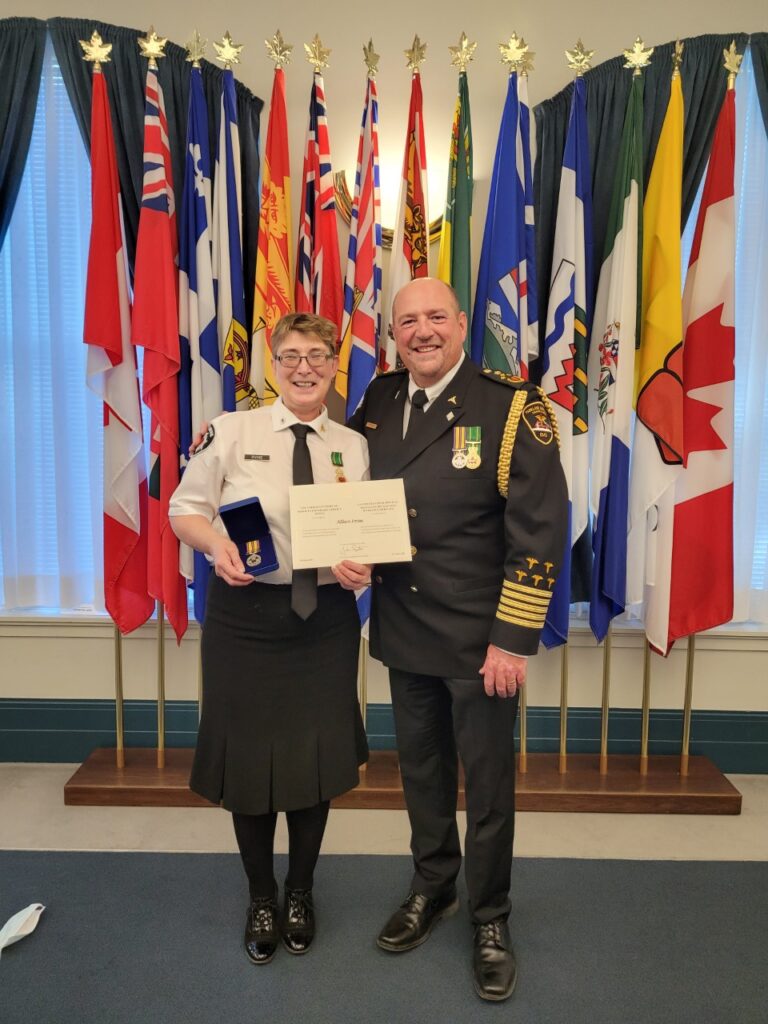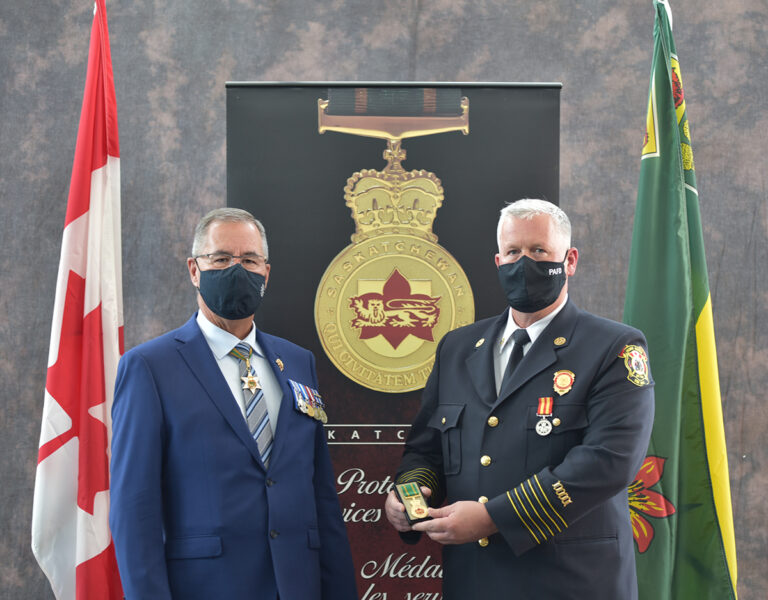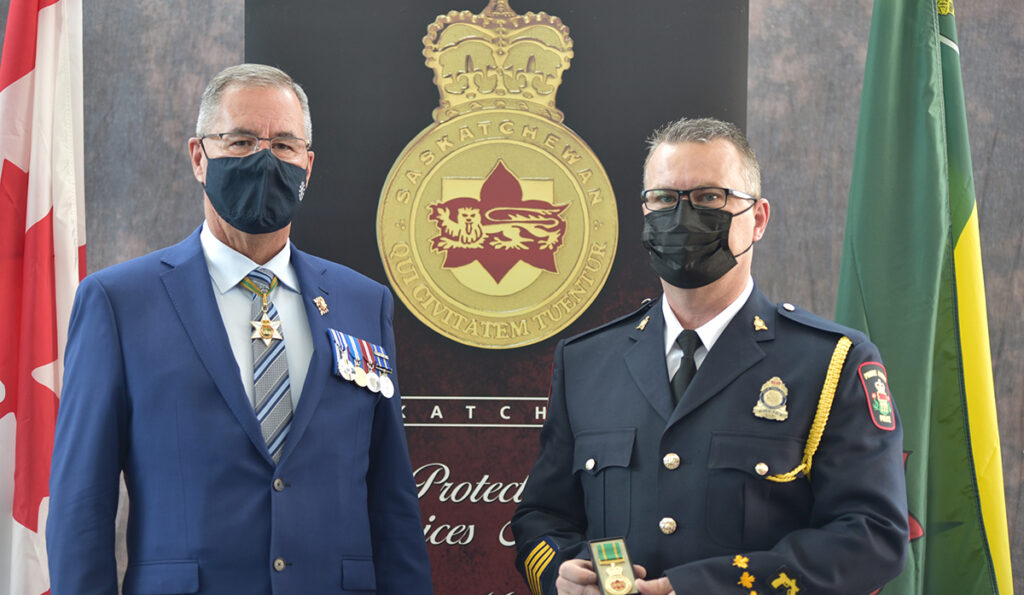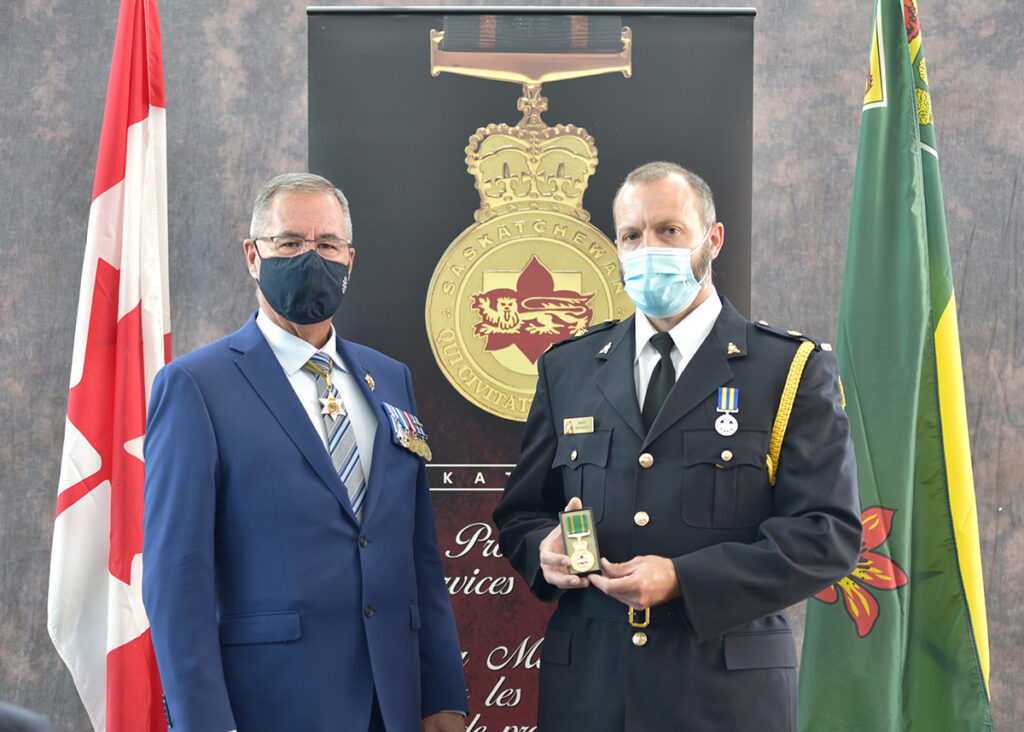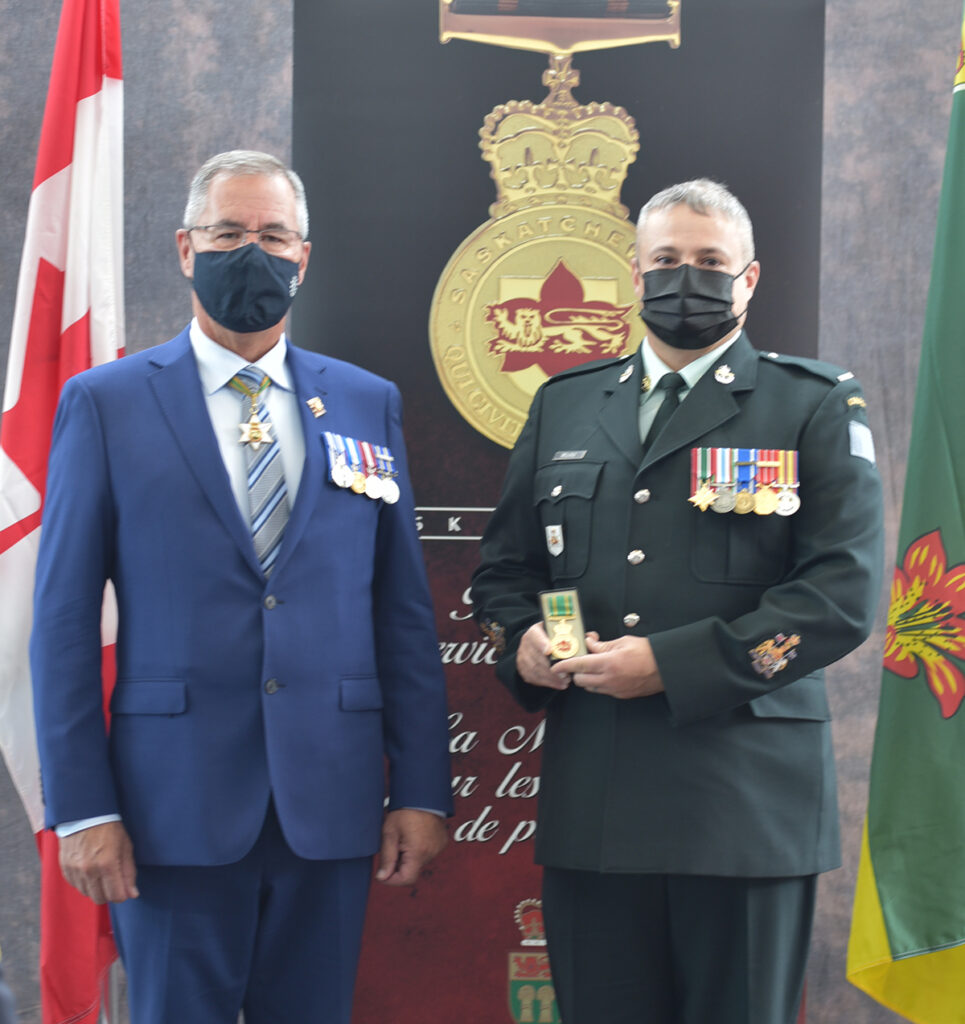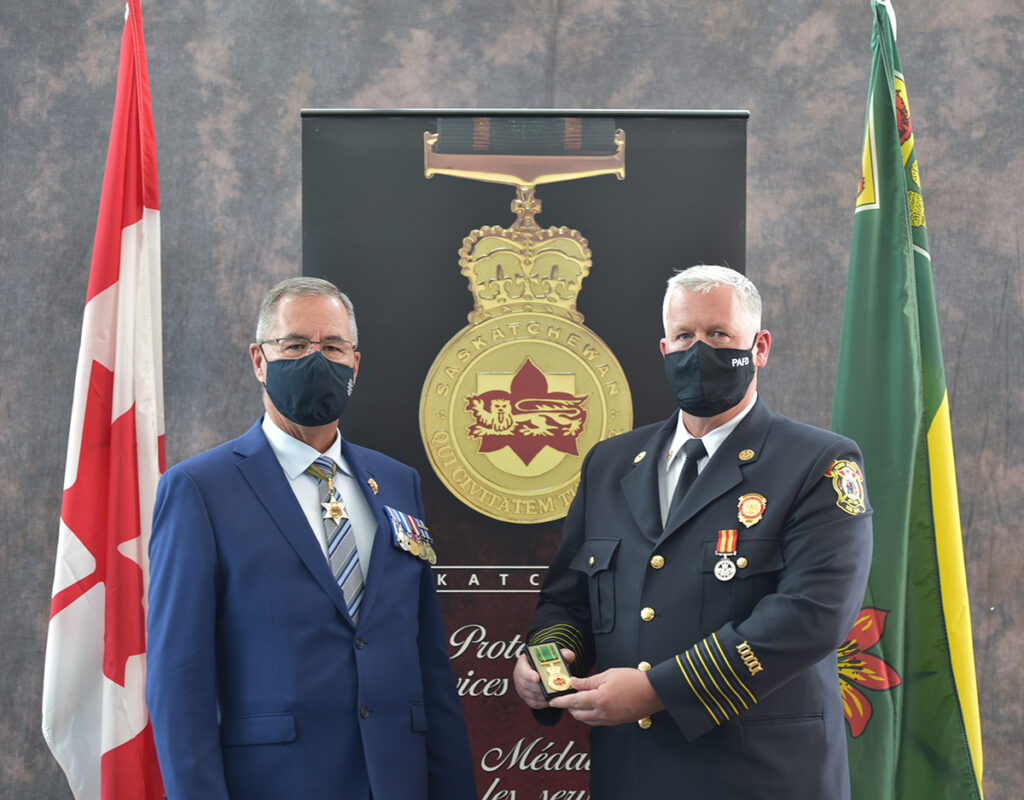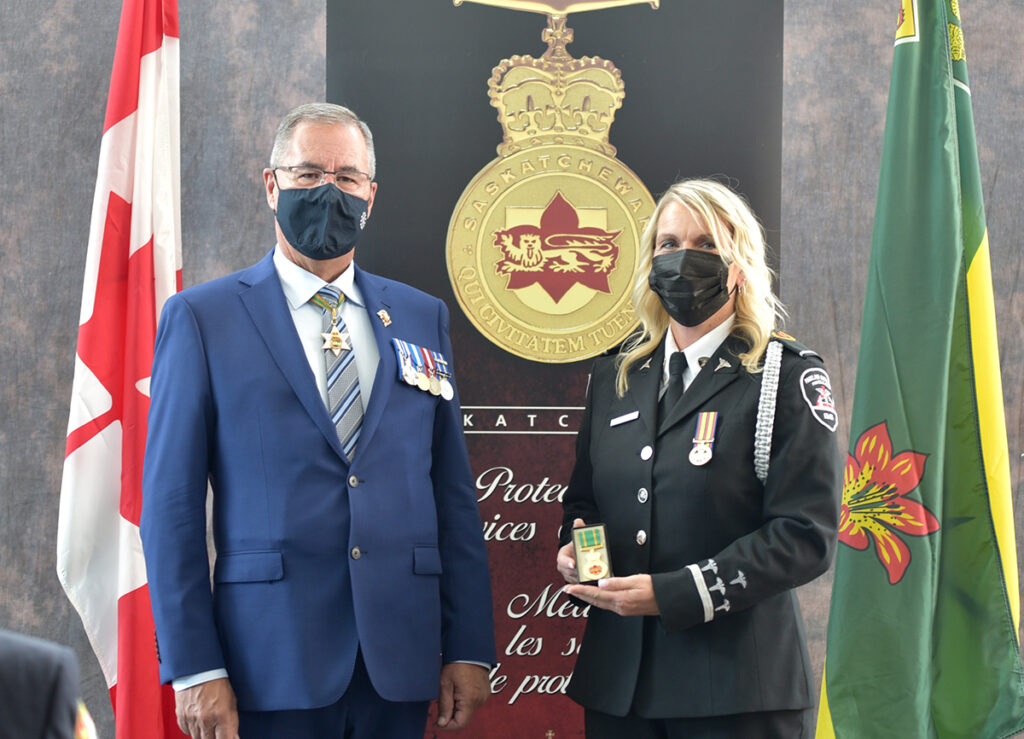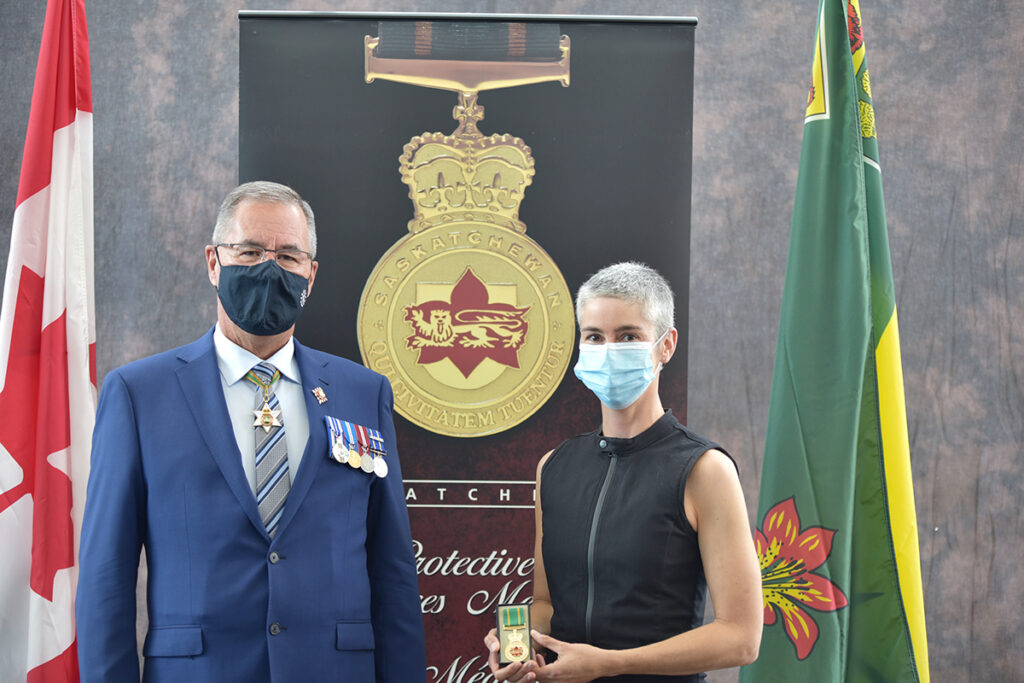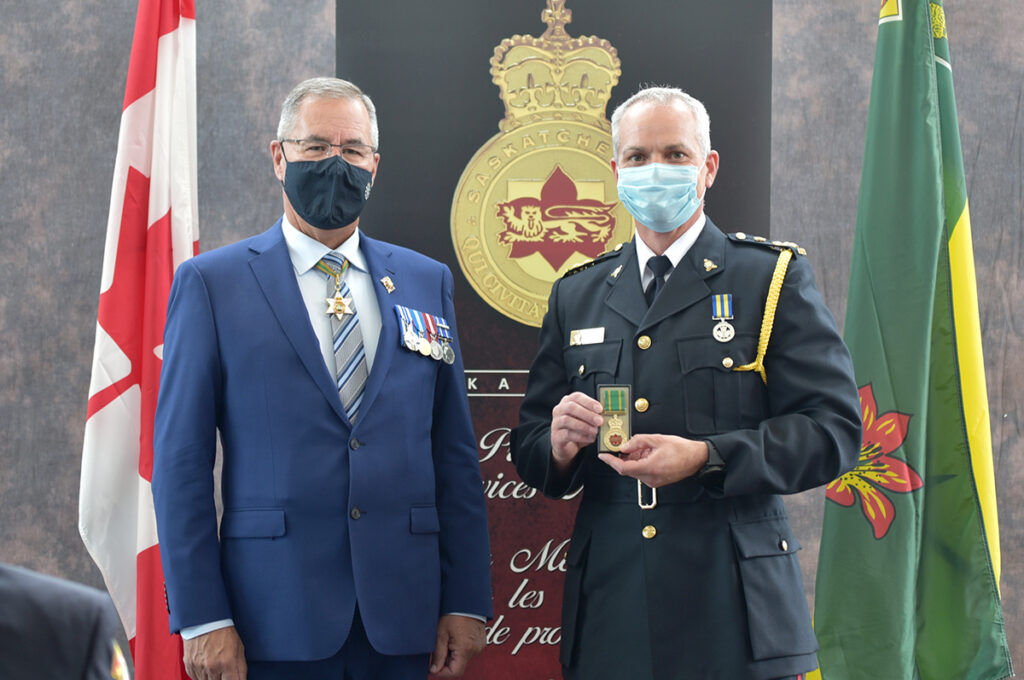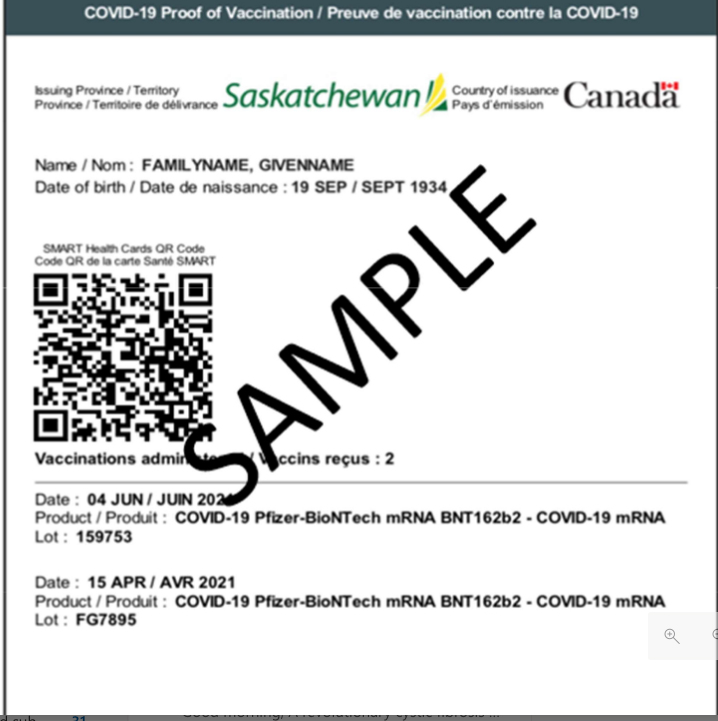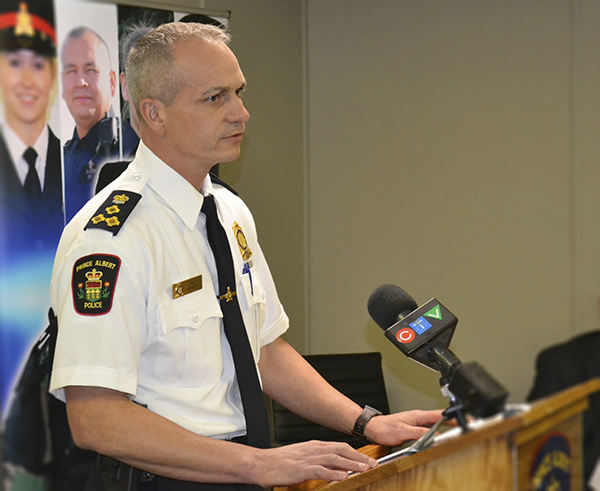Receiving the Governor General’s award for her 27 years as a first responder brings tears to Allison Irvine’s eyes, but only because her father also won it years ago for his time as a firefighter.
Irvine, who hails from Shellbrook, was presented with the medal in Regina by Lieutenant Governor Russ Mirasty on Sept. 15. She said this particular medal is special.
“It means a lot to me,” she said, thinking about her father and how she came to join the Shellbrook Fire Department in the first place.
Irvine’s father was instrumental in helping her become a first responder. Her dad had several heart attacks, but refused to give up his work with the fire department, and her mother was worried about him.
“I became my dad’s little shadow. The fire calls would come in and I’d find out where they were going and kind of wait a bit then follow – because mom would worry about Dad and I was taking care of him” Irvine said. “Because of that, Dad said seeing as you’re tagging along anyway, you might as well just join the department. So I did.”
She said the job is both rewarding and emotional but she is glad to be doing it. That’s a sentiment her parents would share, right down to the winning of the same award, even as a first responder rather than a fire fighter.
“Good job, well deserved, a lot of hard work went into it, they would be very proud,” Irvine said of how she imagined her parent’s reactions.
She segued from working as a firefighter only to also being a first responder because there was no one else on the department with the training at the time.
“It was a particularly bad year for accidents and we had no one trained medically to deal with patients,” Irvine remembered. She was the smallest person in the department at the time which was a benefit in the job and the training was available through Parkland Ambulance in Prince Albert.
The role is not without challenges, some of which can follow the responder home.
“We deal with everything from young children to elderly patients, dealing with trauma, especially with motor vehicle collisions,” she said. “Sometimes that can be really trying on a person but thankfully I have good supports with my first responder partners, my family. That keeps me sane through all of that.”

